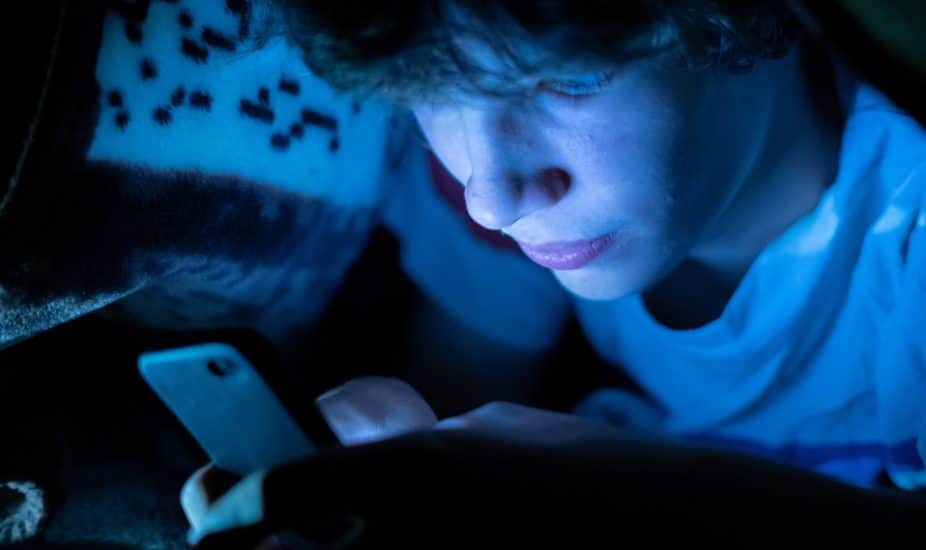Regularly getting insufficient sleep leads to chronic sleep deprivation, which is a contributing factor to significant mental health concerns like depression, anxiety, and low self-esteem.
Not getting enough sleep means teens will do poorer in school, will be more likely to struggle with obesity (and diabetes), and will be at a higher risk for harmful substance use.
What’s the biggest culprit?
Here’s a hint: it’s not their schoolwork or the competitive nature of college admissions. It’s not their activities like sports or drama, and it’s not their hormones.
It’s their smartphone. Since 2012, the year when the majority of teens had their own smartphones, the amount of sleep a teenager gets on average has trended downward.
In fact, the average amount of sleep a teenager gets has declined dramatically.
What can you do as a parent?
It starts with proximity. Don’t let your kids sleep with their phones next to them or under their pillows. Buy them a cheap alarm clock, and keep their phones in another location in the house.
They might feel like they’ll be left out of the conversation between friends if they don’t have constant access to their phones. They might feel like they need to watch one more episode of their favorite show. They might not even recognize the subtle dopamine hits their brains receive when their social media post gets noticed with a like or a reshare.
And all of that activity will trick their brain into thinking it’s still daytime — not time for winding down and getting rest.
Consistent, healthy sleep is essential to a teen’s growth and development. Unfortunately, it’s often overlooked by parents as just another battle to lose.
All families can put consistent sleep as a higher priority, and a simple yet powerful step starts with taking phones out of the bedroom.
Sleep challenges can lead to more than just tired eyes. They can make teens more likely to take risks, including trying drugs and alcohol.
How Educators Can Help Students Sleep Better?
Teachers and school staff play an important role too. While you can’t control what happens at home, you can help students see how sleep shapes their choices and their ability to learn.
Here are a few ideas:
-
Talk about sleep as part of well-being. Bring it up in small ways, like morning check-ins or class discussions.
-
Watch for signs of poor sleep. Tired teens might seem distracted or irritable.
-
Build in healthy sleep reminders. Encourage students to unplug at night and avoid late-night studying.
-
Share insights with families. Let them know how better sleep can help kids feel more focused and confident.
-
Rethink classroom demands. When possible, avoid piling on last-minute assignments that keep kids up too late.
Even these small efforts can help students feel seen, supported, and ready to make healthier choices.
Here are a few extra resources:


